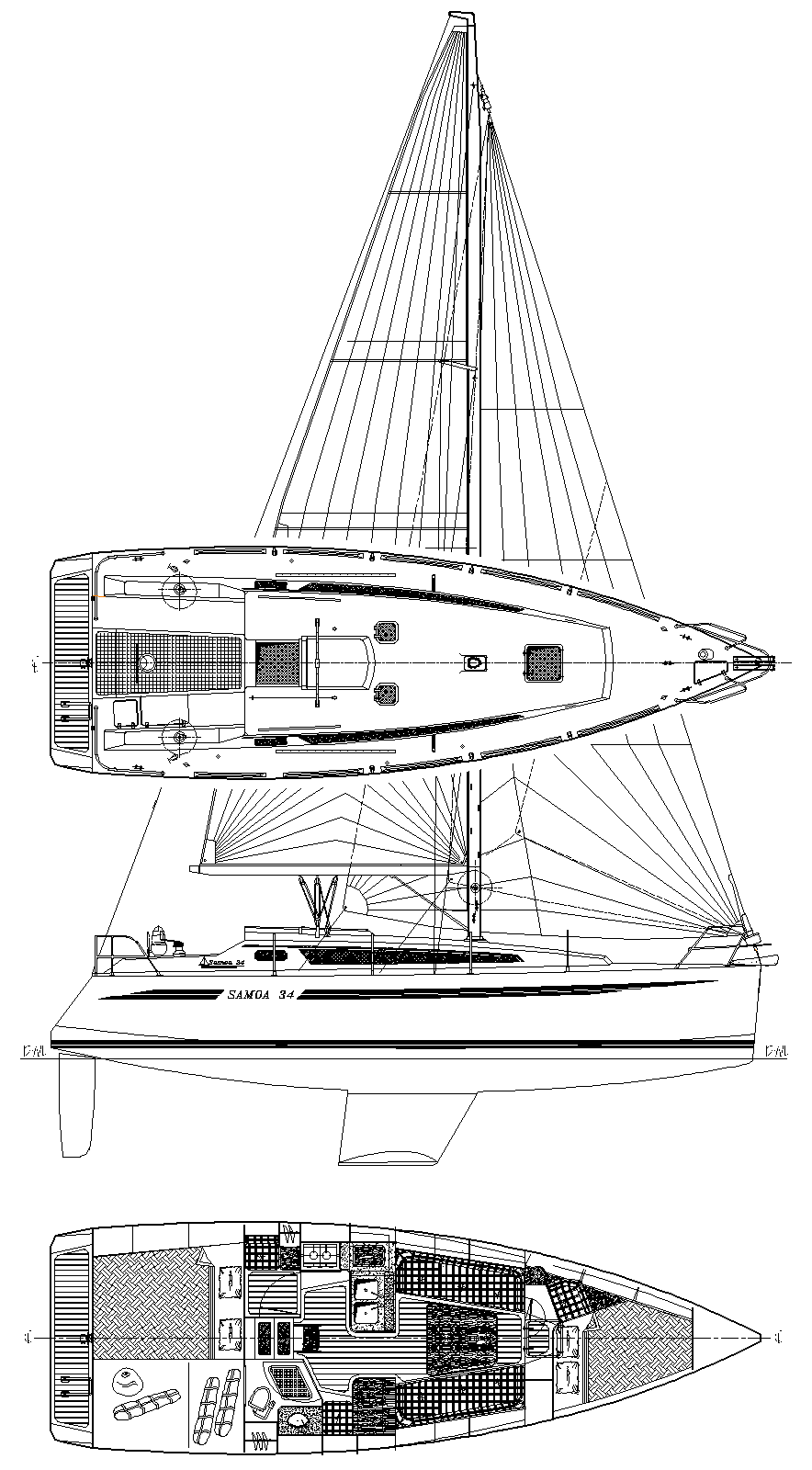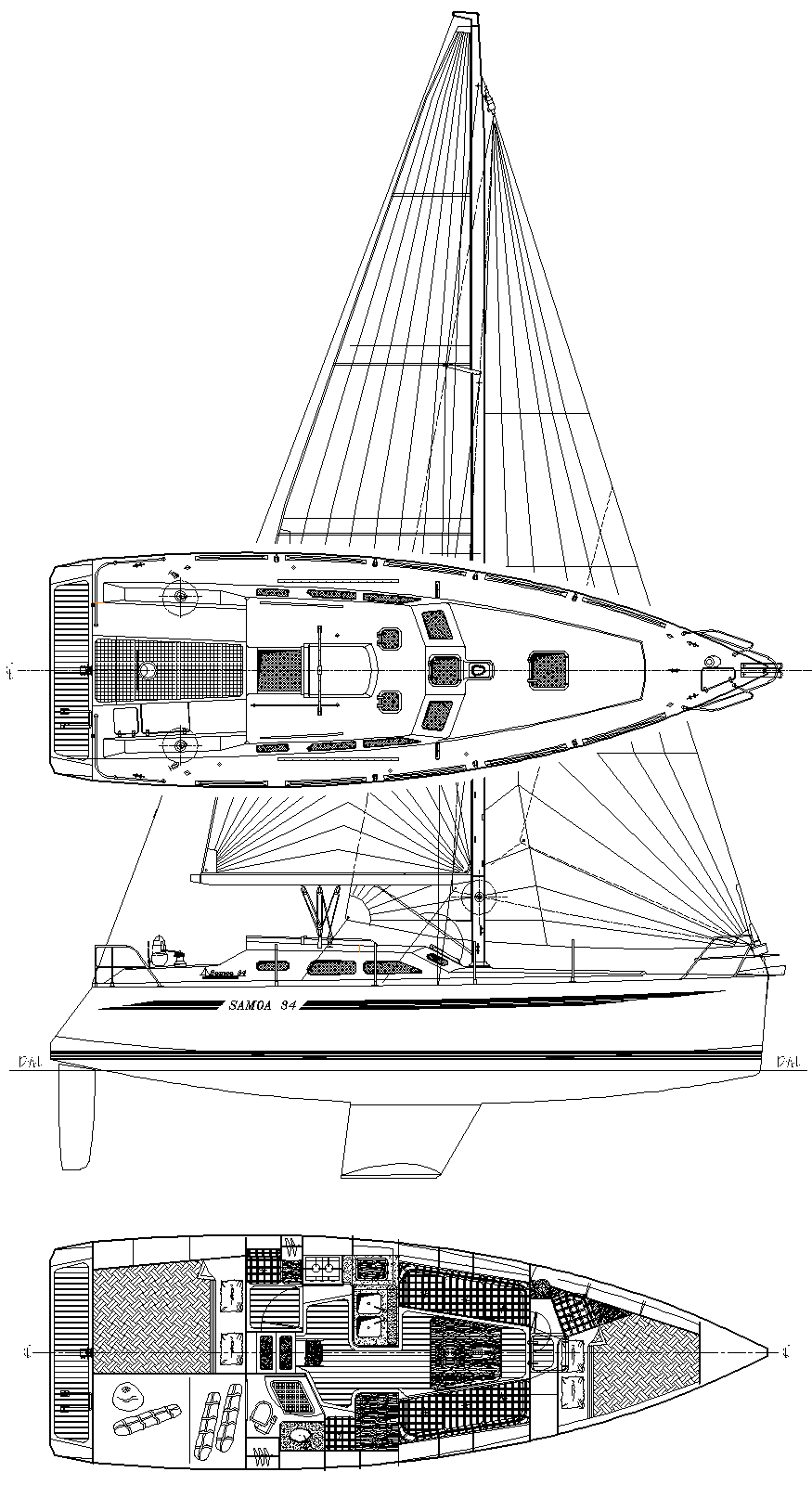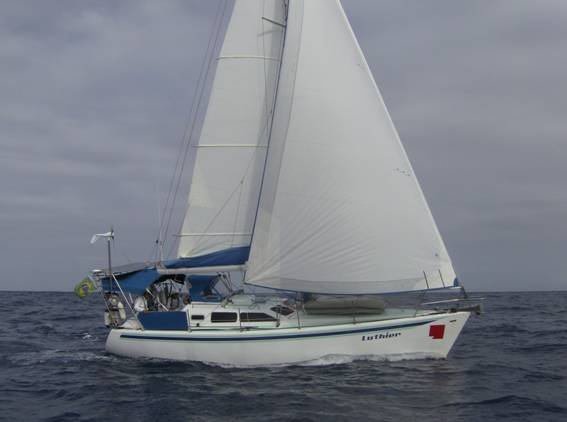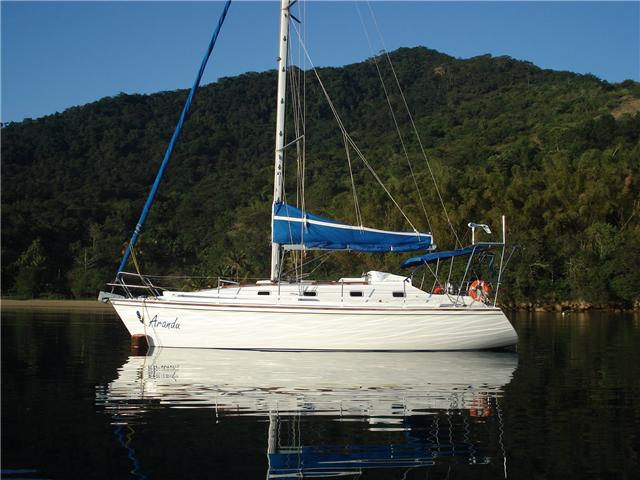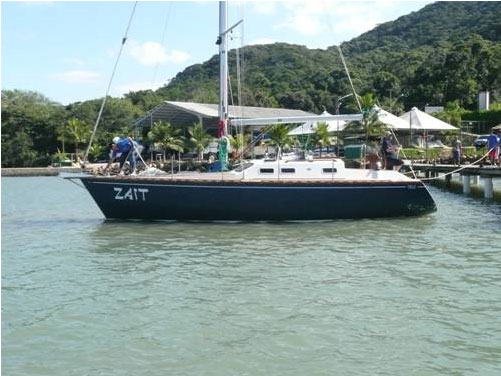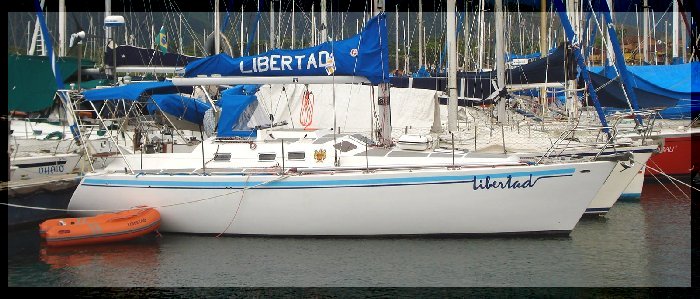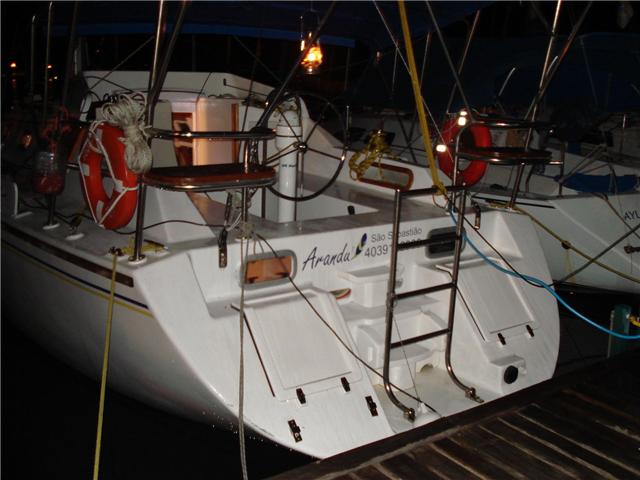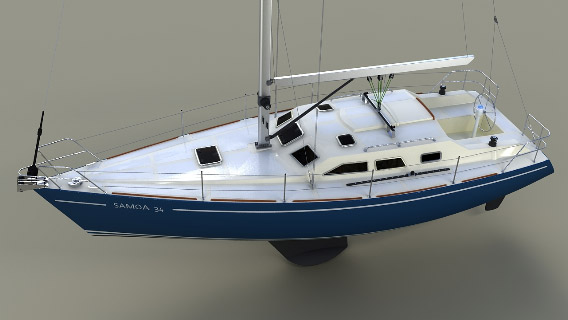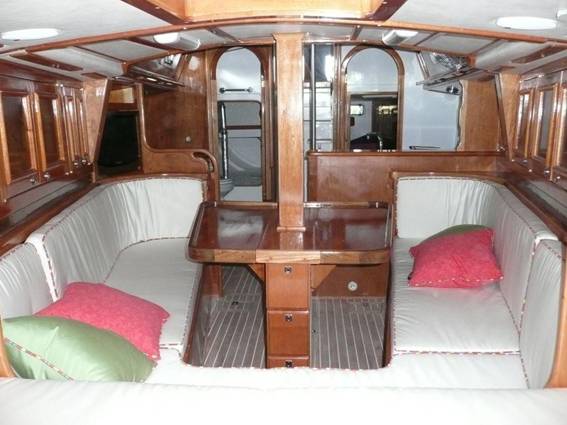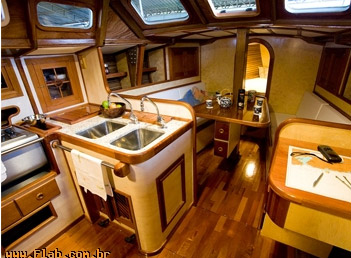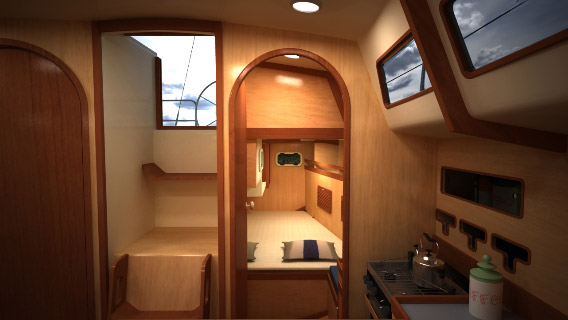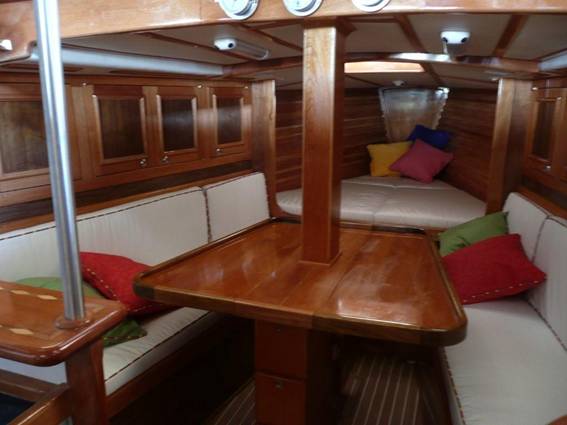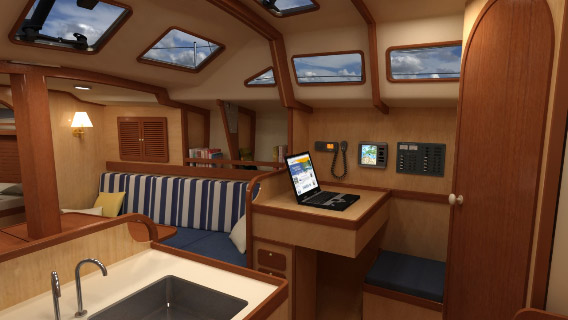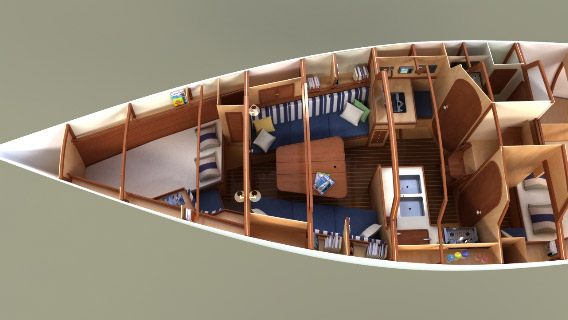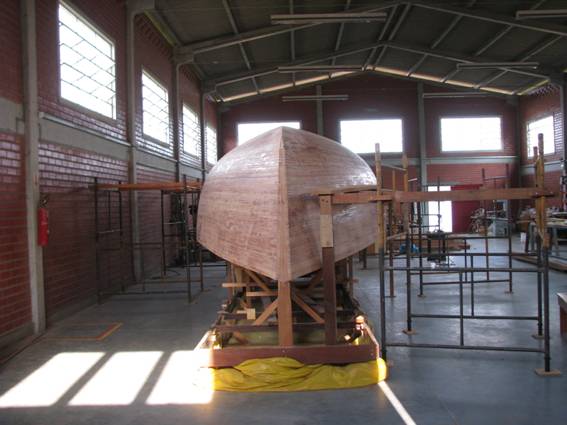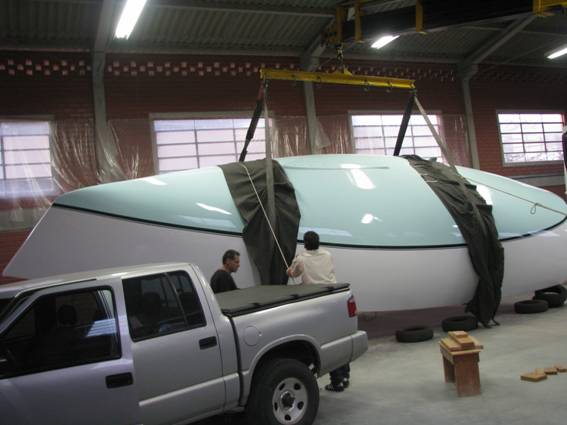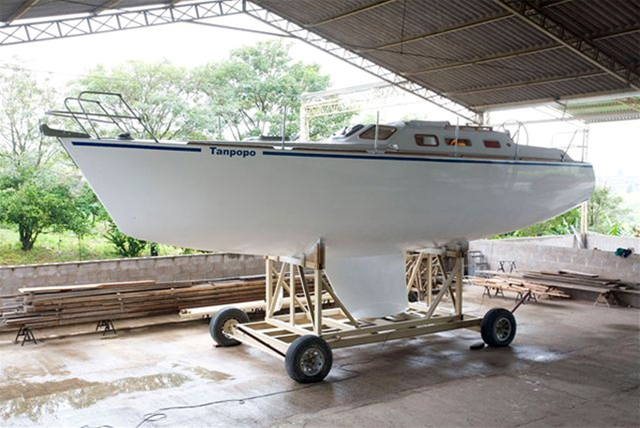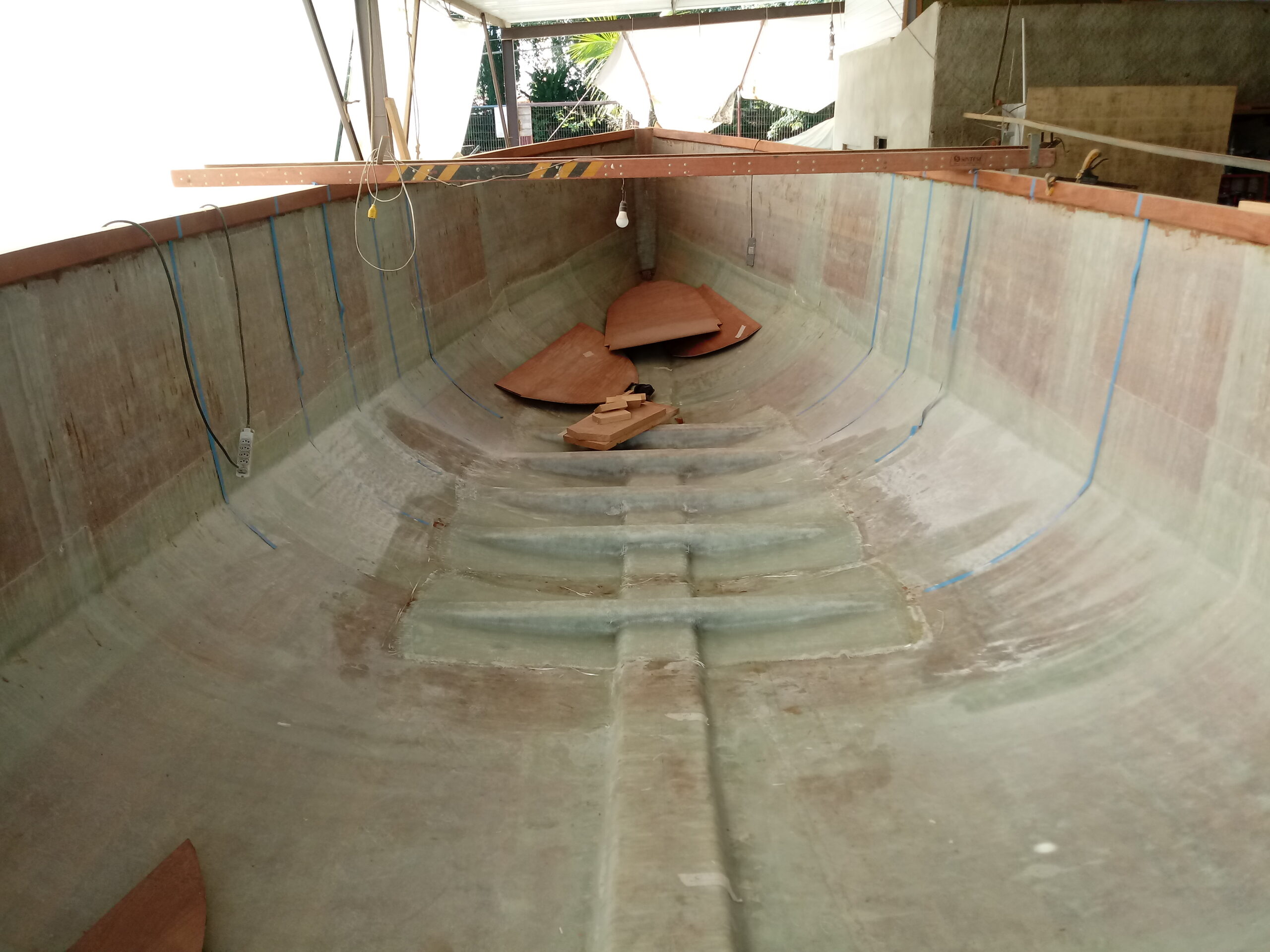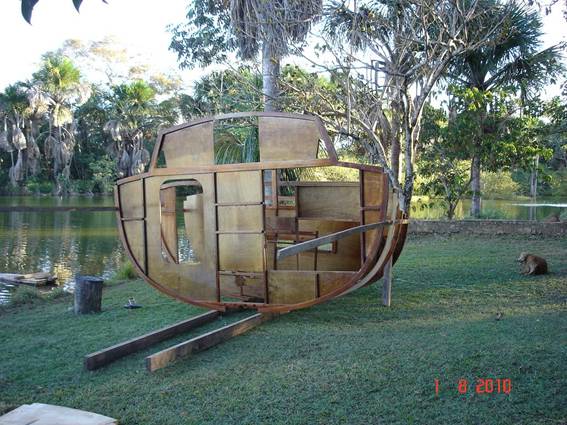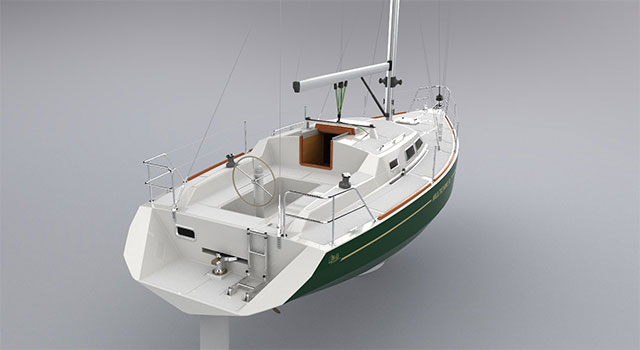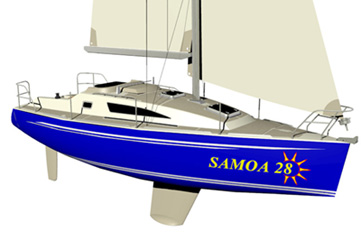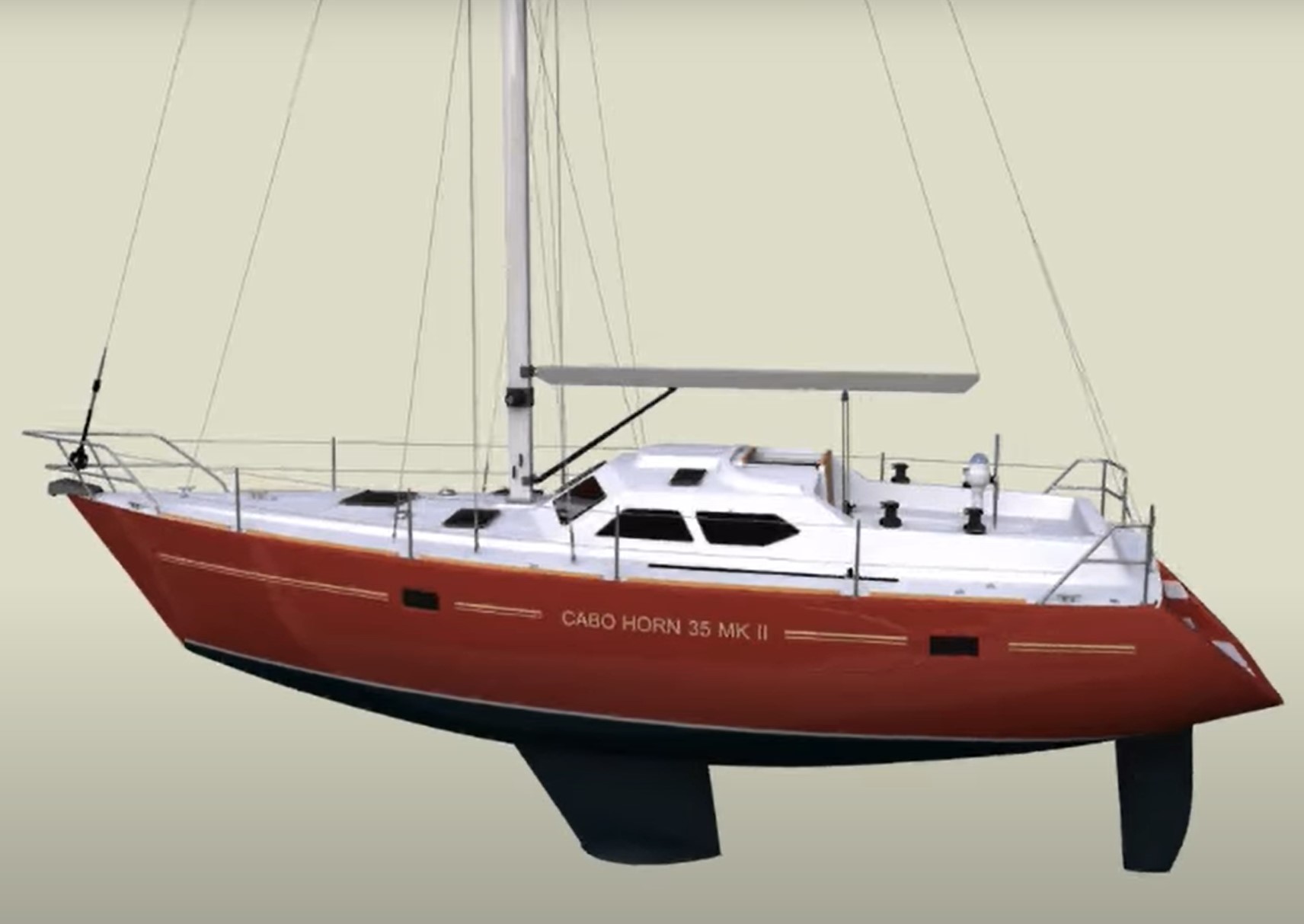Samoa 34 is a good size of boat for overseas passages. Having the necessary power to beat to windward when sailing close-hauled in heavy weather, you will have a boat to be trusted in the worse conditions, while being cosy and functional for living aboard for long stretches.
In addition to her blue water sailing capacity, the Samoa 34 can be fast enough for participating in ocean racing with good chances in the cruising class. Design to meet the Cat. A requirement from the European Union regulations, she is the boat to be trusted when sailing under the harshest of sea conditions, while affording the necessary comfort for the wellbeing of the crew.
Since the introduction of the design the Samoa 34 has been doing an amazing career. With dozens of boats built from the plans and submitted to extensive testing by our builders, including several round trips Atlantic crossings, which served to prove unquestionably the seaworthiness of the design.
Technical Data
Length Overall
10.40 m (34.1’)
Length Waterline
9.77 m (32.0’)
Beam
3.40 m (11.2”)
Draft
1.60 m (5.3’)
Ballast
2,000 kg (4410 lb)
Displacement (light)
6,040 kg (13315 lb)
Freshwater Tank Capacity
475 l (125 gal)
Fuel Tank Capacity
4175 l (46 gal)
Maximum Standing Headroom
2.00 m (6′ 6″)
Standing Headroom – Fore Cabin
1.70 m / 1.86 m (5’5″ / 6’1”)
Standing Headroom – Aft Cabin
1.92 m (6′ 3″)
Rig Type
Sloop
Sail Area
54.5 m2 (587 sqft)
Auxiliary Propulsion
29 hp
Construction
GRP sandwich and wood/epoxy strip planking
List of Plans
SM34-S0A – Full Size Section A
SM34-S0A – Full Size Section B
SM34-S0A – Full Size Section C
SM34-S0A – Full Size Section D
SM34-S0A – Full Size Section E
SM34-S0A – Full Size Section F
SM34 – S1 – Lines Plan
SM34 – S2 – Mast and Sails
SM34 – S3 – Interior Layout
SM34 – S4 – Deck Layout
SM34 – S5 – Structural Arrangement
SM34 – S5B – Construction Details
SM34 – S6A – Transversal Section A
SM34 – S6B – Transversal Section B
SM34 – S7A – Keel
SM34 – S7B – Keel box
SM34 – S8 – Rudder
SM34 – S8A – Rudder Stock and Steering Gear
SM34 – S8B – Full Size Rudder
SM34 – S9 – Custom Fittings
SM34 – S10 – Engine installation
SM34 – S11 – Stem
SM34 – S12A – Hull Construction – Jig
SM34 – S12B – Hull Construction – Sections
Boat Description
The Samoa 34 was intended to provide sleeping accommodation for six persons, four of them in private cabins, with the possibility for two extra crewmembers, sleeping in the saloon’s dinette.
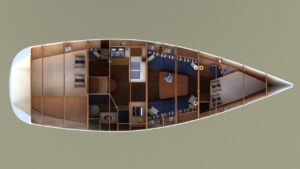
The fore cabin has an almost rectangular double berth, a large counter, a sofa, and a hanging locker. This cabin is as complete as a fore cabin can be, offering all it is necessary for the crew to feel comfortable. There is no restriction to changing the layout for two single bunks if this is preferred.
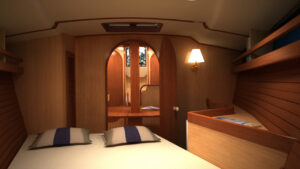
A bulkhead with a double leaf folding door separates this cabin from the main saloon, ensuring privacy to its occupants.
Abaft this bulkhead is placed the most comfortable main saloon that can be conceived for a boat this size. With two symmetrical sofa/berths and a jumbo-sized table fixed to the mast pillar, it has room to spare for a meal to be served for six persons, or else for two adults to sleep there. Behind the backrests there is a profusion of lockers and a large bookshelf at each side, with enough room for a flat screen TV set to be installed in one of the sides.
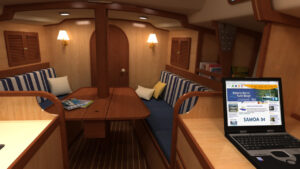
The small and elegant cabin trunk placed behind the mast, is surrounded by windows and opening port-lights, a design feature that allows broad visibility to the outside, good natural illumination, and plenty of ventilation. It’s possible to monitor mainsail and genoa from the aft seats of the two sofas without the need of even standing up, bliss for shorthanded cruising sailors.
Still under the cabin trunk, abaft the two aft seats of the saloon`s sofas, are placed the galley at portside and the navigation table at starboard. The galley’s counter is fitted with two sinks and a refrigerator. The space under the counter-top where the sinks are installed is used to store pots, pans and other cooking utensils, besides enough space for a generous sized dustbin installed on its front face. The gimballed two burners stove is fitted between the countertop and the bulkhead that separates the saloon from the aft cabin.
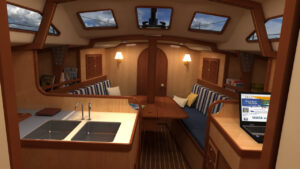
A large navigation table with its own cushioned stool to starboard completes the saloon’s layout. The longitudinal panel to the right of the navigation table is where the electrical switch-panel and most navigation instruments are fixed, except for the radar screen and chart plotter or multifunction monitor, which should be installed in the fore and aft direction facing the navigator’s stool.
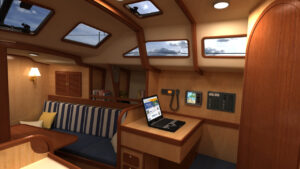
Going aft, placed to starboard, is the heads with vanity unit and shower. The shower water drains into a shower sump fitted with an automatic pump. There is a huge compartment abaft with access from the heads where bulky equipment can be installed, such as genset and water maker, for instance. Shelves close to the topsides provide room for storage of all sorts of boat gear. Abaft this compartment, accessed from the cockpit, there is a large lazarette where the inflatable and spare sails can be stored.
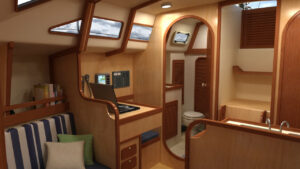
On the opposite side there is a very spacious aft cabin with a huge double berth, a sofa, and plenty of stowage space for the personal belongings of its users. The 2.0 m (6’7”) headroom entrance hall, the same headroom as the whole saloon, is provided with an opening port, which together with a second port installed at the cockpit wall, and yet a third one fitted at the transom bulkhead, provide excellent natural ventilation and illumination to the ambient.
The aft cabin consists of an entrance hall, a counter, a sofa and a good-sized double berth.
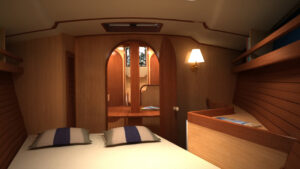
To port there is a sequence of storage bins and shelves, besides a hanging locker at the cabin entrance.
The deck layout is quite simple and functional. The mast is stepped on deck, the best solution in cruising boats minimising the possibility of inconvenient leaks in the saloon. A deep anchor well brings the weight of the chain to a lower level, but still leaves ample space to store fenders in its upper part without interfering with the anchoring procedure.
An almost flush foredeck is a welcome safety factor when foresail changes are performed. It also makes this area of the boat useful for sunbathing or entertaining. It’s also the best place to store a solid dinghy, if this type of tender is preferred.
The traveller placed on top of the companionway hatch protecting box, is the preference of most cruising sailors, since the cockpit stays free from the clumsy main sheet system. A canvas dodger installed abaft the mainsail sheet traveller is highly recommended. The spacious transom platform is quite low, making boarding safe and easy.
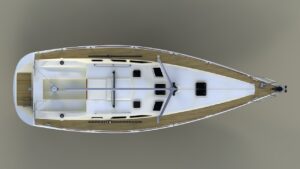
The fractional rigged sail plan is of moderate size, a feature that is highly appreciated for the comfort and safety of cruising families. The mast rigged with swept-back spreaders, is very simple and strong, the best solution for peace of mind when sailing in very bad weather. The fore triangle is quite large what makes the Samoa 34 a very good boat when sailed with main and jib, a great virtue when shorthanded.
A bulbous keel of relatively shallow draught and low centre of gravity, combined with a well-balanced rudder and smooth water lines, make the Samoa 34 a joy to be sailed in light or heavy winds.
The Samoa 34 bulbous fin-keel and rudder have a lot to do with the successful career of the design. The boat had been tested in the harshest conditions never loosing steering control or missing the necessary stability for the safety of the crew.
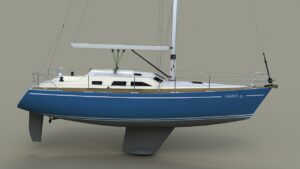
Boat Plans
Browse Gallery
See Related Plans

